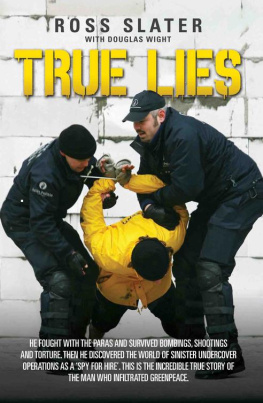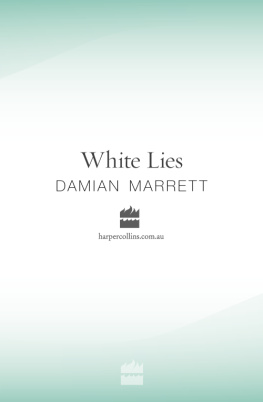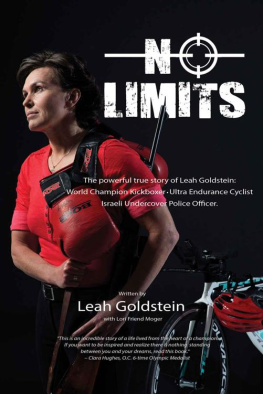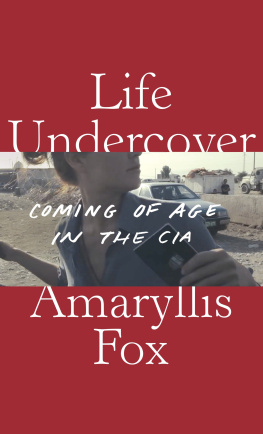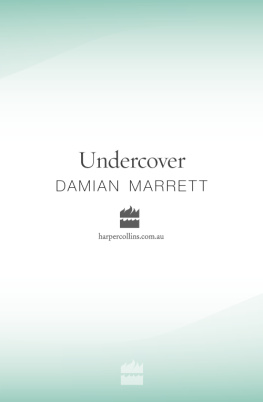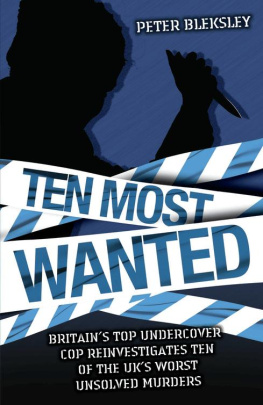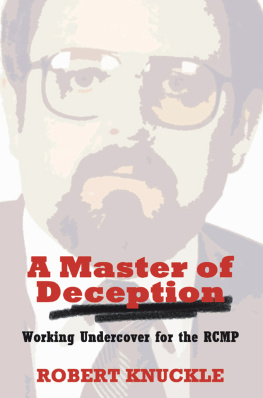UNDERCOVER
The True Story of
Britains Secret Police
ROB EVANS & PAUL LEWIS
To Caroline. I love you.
Every day I am glad that you are with me. Rob
To Barry and Ramona,
who would have been very proud. Paul
CONTENTS
CHAPTER 1
The Secret Unravels
They were in their safe house, sitting on worn-out sofas in the lounge.
A team of undercover police officers had spent the evening drinking and chatting in the London apartment. It was late one night in 1994.
They turned on the television to catch a news report from Germany. Tens of thousands of Germans were trawling through secret files compiled on them before the Berlin Wall came down. There was a wave of revulsion at the scale of surveillance perpetrated by the Stasi, the East German secret police. They had as many as 100,000 informants; teachers were reporting on their students, neighbours snooping on friends, doctors on patients. Even husbands and wives were found to have been informing on each other. The files also revealed the identities of thousands of professionally trained spies. Men and women had been given new identities before being scattered across East Germany to quietly seek out opponents of the communist regime. The TV report showed the distraught face of a woman in Berlin who had discovered the man she had loved for years was a spy.
There was silence in the lounge. Then one of the undercover police officers said what the others must have been thinking.
You do realise, this is going to happen to us one day, he said. Were going to open a book and read all about what weve been up to.
It was a chilling thought. The men lounging on the red sofas were members of the Special Demonstration Squad, a top-secret unit within Londons Metropolitan police. Their undercover work was so secretive that most senior police officers in the land had no idea they even existed. Their job was to monitor British subversives . And to pull it off, they needed to transform themselves into the people they were spying on and live among them for years. Each police officer had forfeited his warrant card in return for a whole new identity, complete with fake passport, driving licence and bank account. Most of them grew beards and long hair, giving rise to the units unofficial nickname, the Hairies.
Twice a week, they met in safe houses to laugh, drink and share anecdotes about their undercover lives. These were bonding sessions. One classified document drawn up at the time defined the purpose of the meetings as the creation of a developed sense of team spirit. On this particular night, they were in a flat in Chiswick. It was on the second floor of an apartment block called Beaumont Court, which they codenamed West London OP. It was standard practice during these gatherings for the police officers to remain in their undercover roles throughout. It led to some bizarre encounters. A bearded anarchist engaged in angry debate with a fascist skinhead. Animal rights activists tried to persuade their colleagues to give up meat. Campaigners from rival left-wing groups would argue over the finer points of Marxism. But unlike in the real world, when the spies would be expected to clash with each other, the safe house meetings were intended to foster camaraderie.
The first time you go to one of the meetings is an experience you never forget, says one spy in the Chiswick safe house that night. Nothing can prepare you for it. Whatever your perception of the police is, you lose it when you see them. They simply do not look like police officers at all. One of them even brought his dog with him. Its the equivalent of turning up at a conference for people selling the Big Issue. Some of them have cans of Carling in their hands because they cannot get out of role.
He recalls how the television report about the activities of the Stasi in Germany triggered an awkward discussion. Of course, the SDS operation was on nothing like the scale of surveillance perpetrated in East Germany. But some of their methods were perhaps not that different.
It was an uneasy conversation, the spy recalls. I think we realised that none of us would like to ever see a book about this come out. We were part of a black operation that absolutely no one knew about. Only the police had actually agreed that all this was all OK. We felt one day there would be a reckoning. Would the British public be happy if they knew this was happening?
*
It was another 17 years before the reckoning. Even then, the process of realisation was a gradual one. There was no sudden deluge of revelations, no decision from on high to come clean about the dark truth of covert policing. None of those who were spied upon were granted permission to visit a police warehouse, open their file and discover which friends and lovers had betrayed them. All of that is perhaps still to come.
Instead, one of the most tightly guarded secrets the British police had ever kept from the people unravelled slowly, like an old jumper finally worn thin. The first frayed thread appeared in October 2010, when a curious blog post appeared on a website. It was an update on Indymedia, a site used by political campaigners to disseminate news.
The page contained two pictures of a strange-looking man. In the first, he was smiling from beneath a fluffy Russian hat. He had a damaged left eye looking sideways. The second photograph showed the same man beside a river, an idyllic country scene behind him. He had shoulder-length hair and the sun was twinkling off his bright gold earrings.
The caption said it all. Mark Stone has been an undercover police officer. We are unsure whether he is still a serving police officer or not. His real name is Mark Kennedy. Investigations into his identity revealed evidence that he has been a police officer and a face-to-face confession has confirmed this.
Although no one knew it at the time, Kennedy was just the latest in a very long line of undercover police who had been living in protest groups. The history of the infiltration of political campaigns stretched way back, long before even the team of officers who were sitting in that lounge in 1994.
But Kennedy was unique. He was the first spy ever to be identified as a police officer and unmasked in public. He would, within a few months, become Britains most infamous undercover police officer, setting in train a cascade of revelations that would shock the establishment to its core.
Kennedy was 41 years old, brought up in the commuter belt of London, and married with two children. His alias, Mark Stone, was a tattoo-covered man of the same age but cut from a very different cloth. Stone was a cocky, gregarious eco-activist with a taste for adventure. Based in Nottingham, he travelled across Europe, infiltrating almost every major anti-capitalist and environmental protest.
Kennedy seemed to have licence to do whatever was necessary to manipulate activists into trusting him. He had an endless supply of cash, earning him his nickname, Flash. He had two long-term activist girlfriends and countless other sexual liaisons. One of the women remained his partner for six years.
Not long after the blog post appeared on the internet, senior police began to realise the severity of the situation. They quickly established that Kennedy had crumbled in front of his activist friends and admitted his real identity. If that was not bad enough, Kennedy had also compromised another police spy, revealing that a woman eco-activist who pretended to work in care homes in Leeds was actually another undercover officer. Kennedy had gone rogue.


